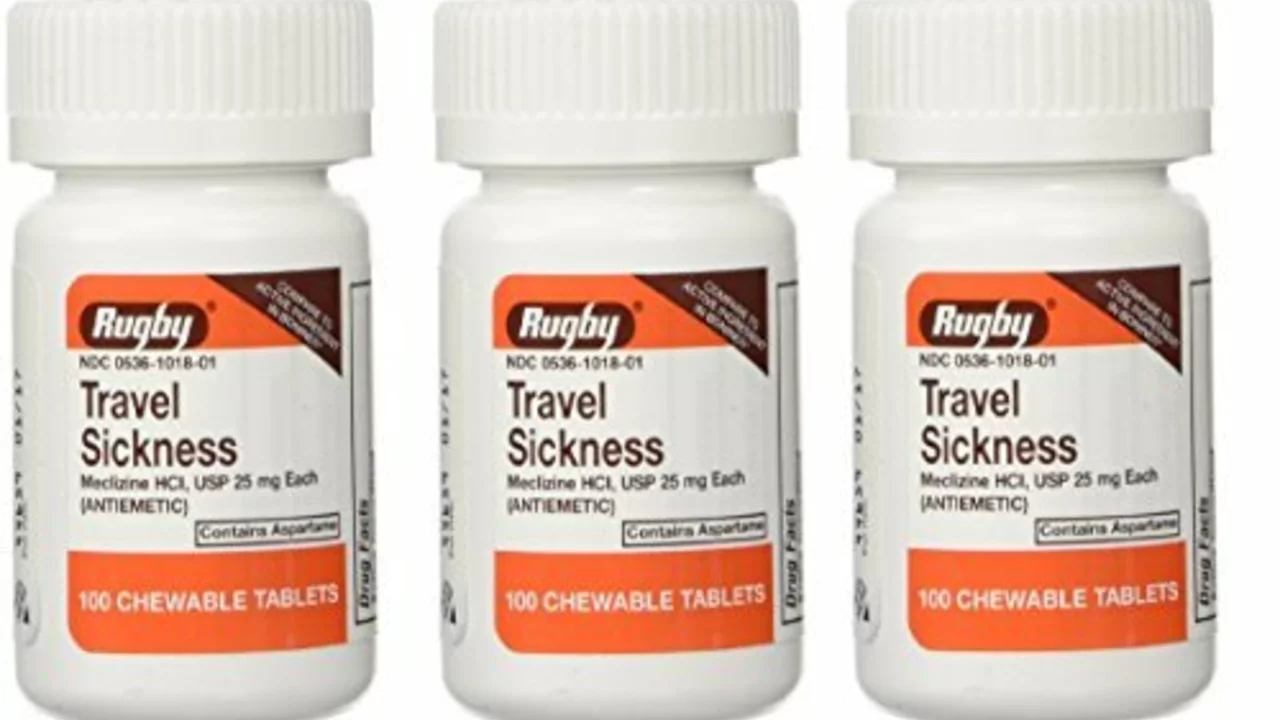Meclizine: What It Treats and How to Use It
Got dizzy spells, seasickness, or a spinning room after a head turn? Meclizine is a commonly used antihistamine that helps reduce motion sickness and the nausea or dizziness linked to inner-ear problems. It doesn’t cure the cause of vertigo, but it can make symptoms manageable so you can function.
How to take meclizine safely
For motion sickness, adults usually take 25–50 mg about one hour before travel. Many people find 25 mg works fine; others need 50 mg. For vertigo, doctors often prescribe 25–100 mg per day, either once or in divided doses. Don’t exceed the prescribed amount and follow your clinician’s advice if you have liver or kidney issues.
Meclizine is available over the counter and by prescription in some doses. If you’re pregnant, breastfeeding, have prostate problems, glaucoma, or are on other medications, check with your provider first. The drug can make you drowsy—avoid driving, operating machinery, or mixing it with alcohol or other sedatives.
Quick tips for motion sickness & vertigo
Take meclizine before symptoms start—one hour before travel works best. Combine it with simple non-drug measures: sit where motion is least felt (front seat of a car, mid-ship on a boat), look at the horizon, avoid heavy or greasy meals, and keep fresh air flowing. For some types of vertigo caused by loose crystals in the inner ear (BPPV), repositioning maneuvers like the Epley maneuver often fix the problem more effectively than medication. Meclizine helps with the nausea while you treat the cause.
Common side effects include drowsiness, dry mouth, blurred vision, and sometimes constipation or urinary hesitancy. If you notice fast heartbeat, severe confusion, high fever, or trouble urinating, stop the drug and get medical help. Serious allergic reactions are rare but require urgent care.
Meclizine interacts with alcohol, benzodiazepines, sleep medicines, and other drugs that depress the central nervous system—combining them increases sedation and risk. Tell your doctor about all prescription and OTC meds, plus herbal supplements. If you’re switching from another anti-nausea medicine (like promethazine or scopolamine), your clinician can advise the safest transition.
Storage is simple: keep tablets in their original container at room temperature, away from moisture and kids. If you miss a pre-travel dose, take it as soon as you remember if travel is still imminent; otherwise skip and don’t double up.
Want an alternative or want to avoid meds? Dimenhydrinate (Dramamine), scopolamine patches, or natural options like ginger may help mild cases. For persistent vertigo, ask about vestibular rehab or ENT evaluation—meclizine eases symptoms but doesn’t replace targeted treatment.
If you have questions about dosing, side effects, or mixing meclizine with other medicines, reach out to your pharmacist or healthcare provider. Small changes—timing the dose, avoiding alcohol, and combining simple motion-sickness tactics—often make a big difference.

 Jan, 7 2026
Jan, 7 2026
